This Teacher Feature is written by Catherine Etter, drama & tech theatre teacher.
My heart sinks as I open my account with a well-known theatrical licensing company: “Amount Due: $2,030.80.” This number just accounts for the rental fee, royalty fees, and shipping costs of materials to perform a popular musical, and does not cover the costs of costumes, set materials, props, lumber, hardware, etc. that are necessary to produce the show. In addition, there is no guarantee we can have in-person performances at all! Though we cannot have a traditional musical this year, I made a plan to create the next best thing.
In the 2020 fall semester, Senior and Thespian President Annie Brown wrote a portion of a musical without assistance. Then Annie submitted her original musical “just for fun,” as she says, to the Thespians Society’s MusicalWorks competition. Not only did she do well, but she won first place out of hundred of entries from Texas, Oklahoma, and Kansas! Despite a tumultuous 2020, Annie remained inspired to write her own show. So, I thought, “Why couldn’t the drama department do the same thing?”
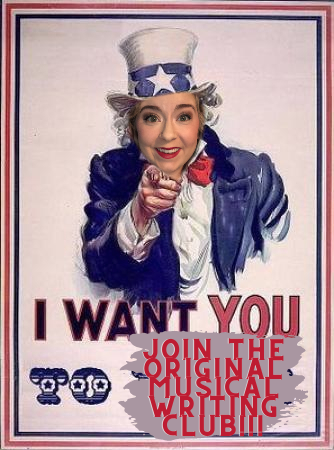
Dubbing this unorthodox project, the Original Musical Writing Club, I started advertising the club in the school announcements, all of my classes, and I encouraged other teachers to do the same. We formed our club with 24 dedicated members to start in the spring semester. We began by meeting virtually because of coronavirus restrictions and will potentially move to in-person meetings later in the semester. The plan is to have 5 bi-weekly meetings with a fully-fledged musical written by the end of February!
When signing-up, students were asked to brainstorm plots for our original musical which was then voted on by the members. Ultimately, it was decided that we would write a dystopian, science fiction, pseudo-Wizard of Oz style story, where the main characters progress on an emotional journey, rather than a physical one. The entire group met virtually and solidified the characters, general plot outline, and theme of the work in just two meetings!
Finally, students requested to be a member of one of three committees: the Song Writing Committee, Script Writing Committee, or Design Committee. At the beginning of each meeting, we gather as a group, then students leave for their committee breakout rooms led by a student leader. During our meetings, I jump to each breakout room, check on the group’s progress and answer any questions. Currently, we’ve had four meetings, have written two songs, two scenes (and the beginning of a third), and have solidified a design aesthetic for the set and costume design.
Though I’d love to hold auditions, cast and rehearse the show, and produce this musical in-person, there’s no guarantee that will be possible this year. However, this group has already achieved something great. They collaborate, speak courteously towards each other, respect each other’s ideas and opinions, and encourage one another. I’m a proud teacher seeing the way they interact. This brings me to ponder the idea: a non-traditional school year requires non-traditional methods. Only through creative problem solving will educators be able to inspire students, and for this drama teacher, that solution is helping my students write “the little musical that could.”
These programs are crucial to developing students’ soft skills such as leadership, collaboration, respect, and teamwork. This work could not be possible without the generous support of individuals, corporations, or charitable foundations. The HFAA Foundation offers Teacher Resource Grants to assist teachers with innovative programs such as the Original Musical Writing Club. I hope you will be able to join us in supporting this program by making a tax-deductible donation today.

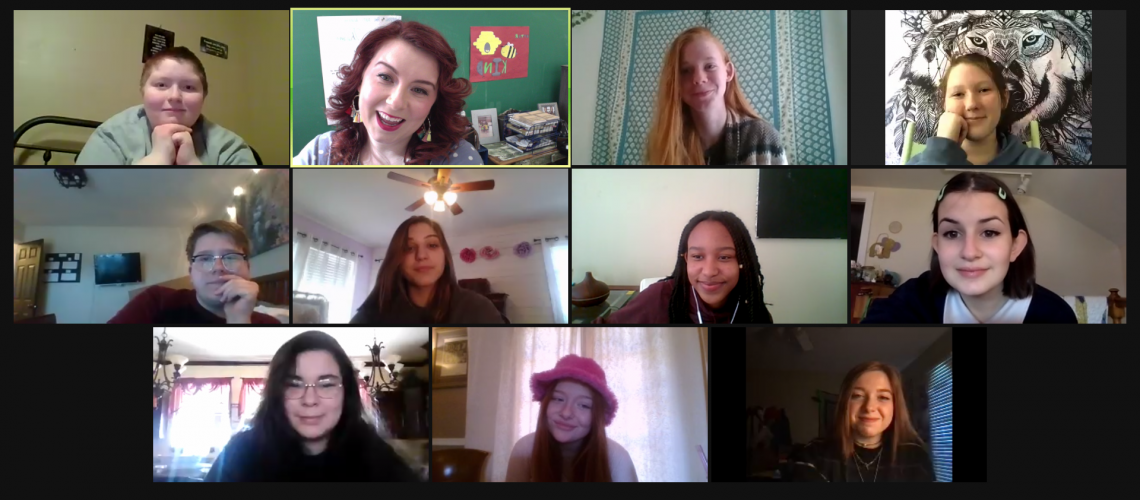
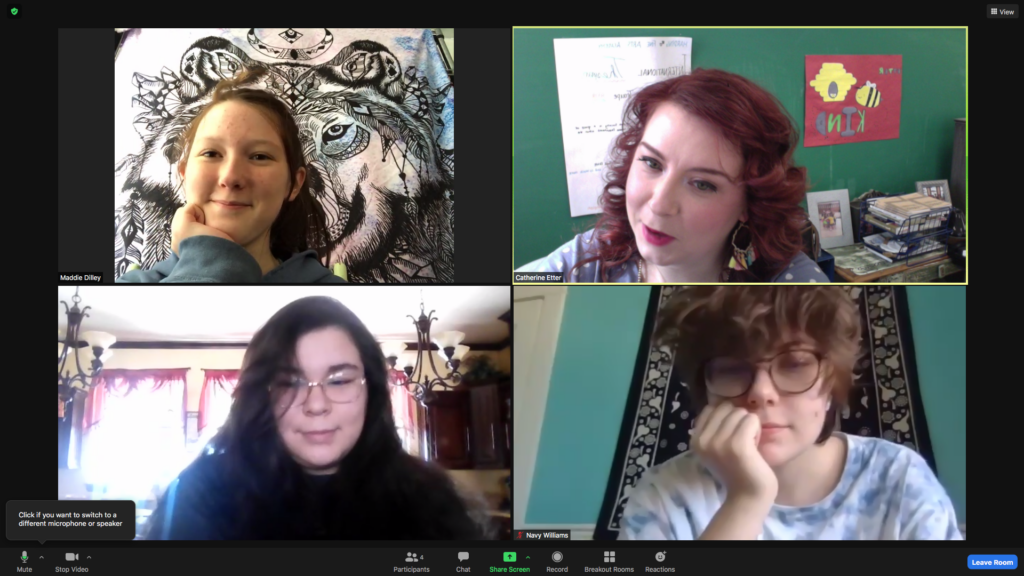
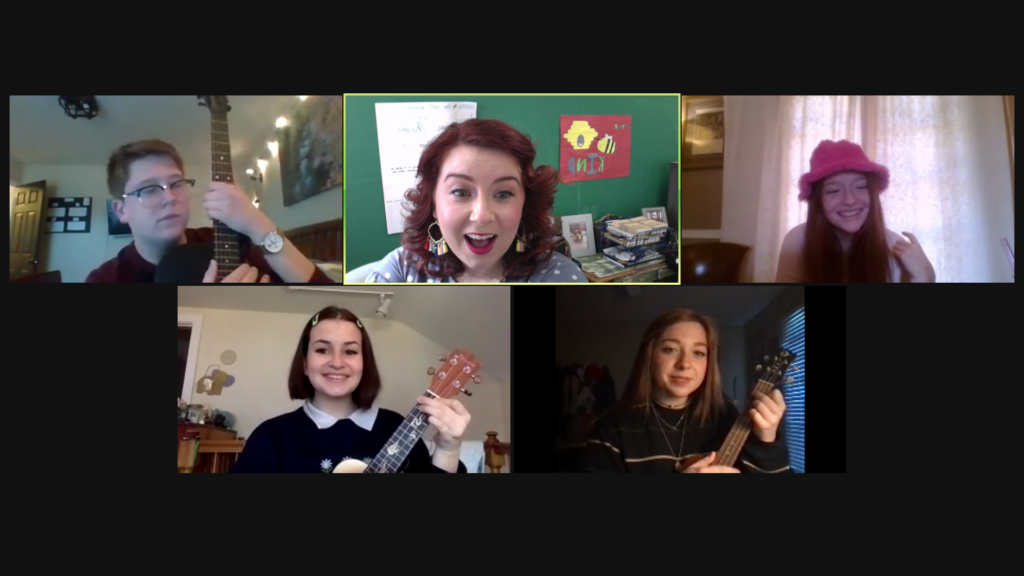
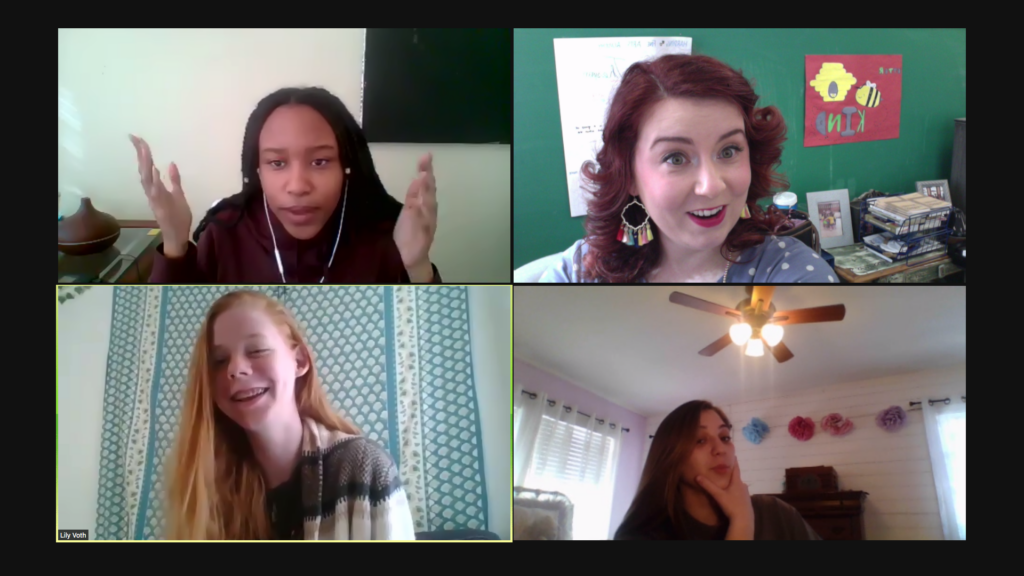

2 responses to “Teacher Feature: The Little Musical That Could”
Dear Ms. Etter- what a creative and engaging idea for your students! It really IS possible to “do” the arts in a virtual school setting. HFAA is truly fortunate to have a teacher of your caliber and dedication to student learning, who may inspire more teachers to reach new heights.
[…] and I am a junior here at Harding Fine Arts. My main passion here at school, and other places, is musical theatre. I am this years secretary for our Thespians troupe, I have been in STUCO and NHS for all my years […]